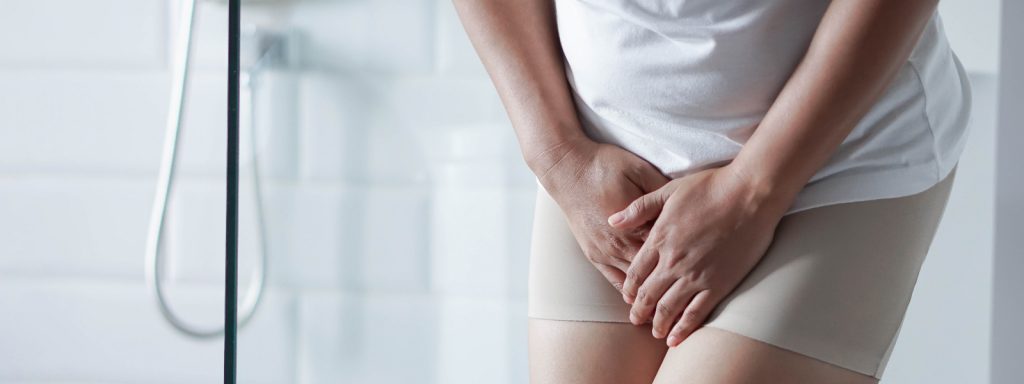Urinary incontinence is very common, sometimes embarrassing, and actually quite expensive. Women spend millions of dollars on pantiliners and pads every year, as well as medications, procedures, and surgeries.
What Are the Types of Urinary Incontinence?
Incontinence in women is usually broken up into two categories. The two types are stress incontinence and urge incontinence. Stress incontinence refers to stress on the bladder that may lead to unexpected and sudden leaking in certain situations. Urge incontinence, on the other hand, is a sudden and overwhelming desire to evacuate the bladder as soon as possible. Both can be very distressing, especially if you are experiencing this problem for the first time.

What Causes Urinary Incontinence?
One of the most common causes of urinary incontinence is pregnancy. This is the case because pregnancy and childbirth weaken pelvic floor muscles, meaning less support for the bladder. Multiple pregnancies and the effects of aging can exacerbate this condition. While not everyone will experience incontinence as they get older or after pregnancy, some incontinence is not all that uncommon.
Urodynamics
Proper diagnosis of the underlying cause for urinary incontinence is essential. At Horizons Health & Wellness, we obtain a careful history, perform a complete physical exam, and search for outside influences on bladder control (such as nicotine, caffeine, and alcohol). If the underlying cause is unclear, we may recommend a sophisticated bladder evaluation called urodynamic testing. This 15-20 minute procedure is performed in our Bridgewater office and provides valuable information on how your bladder works. You will be asked to void in a cup so we can measure how much you void. Next, we will insert a catheter in your bladder to see how much urine is still there. This will help us understand whether you are emptying your bladder fully. Following that, we will slowly add water through the catheter into your bladder to determine how much urine your bladder can hold. While your bladder is full, we will ask you to cough or jump to determine how much, if any, pressure is needed to cause you to leak. Finally, we will have you void while the catheter is in place. This will help us understand whether your bladder muscle contracts normally. The information gathered from this test is invaluable in determining the best course of action.
What Are Pessaries?
Pessaries are small silicone devices that come in different shapes and sizes. These are inserted into your vagina to correct prolapsing pelvic organs, such as the bladder and uterus. At Horizons Health & Wellness, we can help you find the right pessary to correct your unique anatomy, and thereby reduce urinary incontinence.
How Does Urgent PC Work?
The Urgent PC system offered here at our Bridgewater center delivers a specific type of neuromodulation called percutaneous tibial nerve stimulation (PTNS). When you arrive for your session, a single, tiny needle similar to an acupuncture needle will be inserted near your ankle. The needle will be connected to an electrode, which is connected to a battery-powered stimulator. You will sit comfortably in a recliner during the 30-minute treatment session. The mild impulses will travel from your ankle up along your leg and into the nerves in your spine and pelvis that control bladder function. The treatment is safe, effective, and can give you the relief you’ve been looking for from an overactive bladder.
How is Urinary Incontinence Treated?
Successful treatment of urinary incontinence depends on the underlying cause. Weak pelvic floor muscles can be strengthened through simple exercises which can be done at home. Pelvic floor physical therapy can also be prescribed. Altering fluid intake, reducing caffeine, nicotine and alcohol are also strategies that can improve bladder control. Bladder retraining through timed voids can reduce urinary frequency. Sometimes prescription medications are needed to reduce urinary frequency. Some women need surgical correction to help reduce urine incontinence.

Urinary Incontinence Treatments in Bridgewater, MA
If you find yourself rushing to the bathroom at inappropriate times, our team at Horizons Health & Wellness can help. Each treatment at our office is delivered with the greatest care and attention to minimize discomfort and maximize results. To get started, please fill out the form below or call (508) 807-0634.

